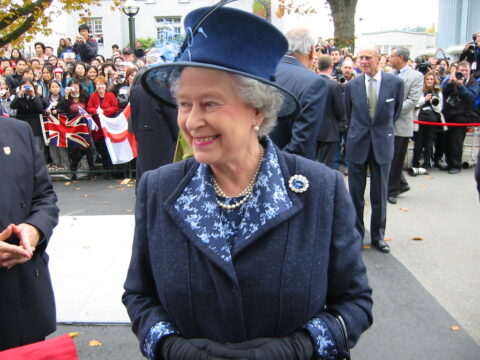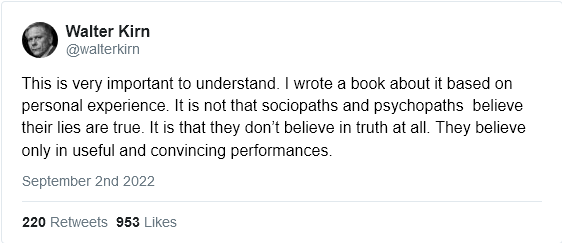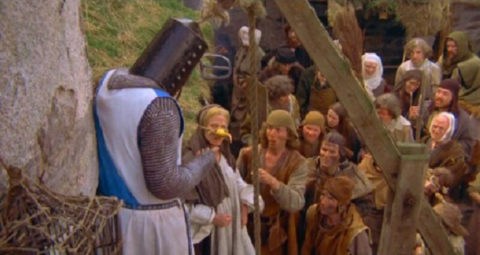Of course, he was already well on the way to being “Hitler” even before the landslide voting results were announced:

New Conservative Party of Canada leader Pierre Poilievre at a Manning Centre event, 1 March 2014.
Manning Centre photo via Wikimedia Commons.
First, this was a completely lopsided blowout victory for the Poilievre team. The Jean Charest people, God bless them, had been telling anyone who would listen these last few weeks that their campaign had a strategy to win on points, thanks to their strong support in Quebec. So yeah, that didn’t happen. Poilievre won on the first ballot with almost 70 per cent of the vote; Charest came in second with … not quite 17 per cent. (Leslyn Lewis came in a distant third with less than 10 per cent, which she’ll probably attribute to the WEF controlling the process using mind-controlling nano-bots hidden COVID-19 vaccines or something similarly totally normal and reasonable.)
But yeah. Sixty eight point one five per cent on the first ballot. That’s a pretty clear signal.
To be honest, we at The Line saw that signal being sent pretty clearly many months ago. As Line editor Matt Gurney wrote almost exactly a year ago here, the only thing that was going to stop the Conservatives taking a real turn to the right was going to be a good showing by former leader Erin O’Toole in the 2021 federal election. He failed to deliver, and discredited the notion of success-via-moderation in the process. Conservatives now want the real thing: a big hunk of conservative red meat on their plate. And we never had any doubt that Poilievre was going to be the guy to serve that up for them.
Poilievre now has something that neither of his last two predecessors had. He has the support of the party behind him. Andrew Scheer needed 13 ballots to win in 2017, and even then only barely edged out Maxime Bernier. O’Toole won a more decisive victory against Peter MacKay, but as soon as he tacked back toward the centre, much of the party became palpably angry and uncomfortable with his leadership. Poilievre will not have these problems. The Conservative Party of Canada is his now.
In terms of our federal politics generally, we repeat a point we have been making here and in other places for many months. We think many Canadians, particularly those of the Liberal persuasion, may be shocked by how well Poilieivre will come across to Canadians. We believe there are a lot of people out there, who don’t have blue checkmarks and don’t spend all their time microblogging angrily at each other, who will like a lot of what Poilievre has to say and won’t find him nearly as scary as those who #StandWithTrudeau.
Poilievre has a nasty streak, and a temper, and we’re not sure that he will be able to control either. He could easily destroy himself. He has baggage too, and maybe get too close to the fringe. But if he doesn’t, we think he has a real shot.
And we think he will be helped by the weakness of the Liberals. This government seems exhausted and increasingly overtaken by events. It is also overly reliant on a few tricks. We suspect Canadians are growing tired of a Justin Trudeau smile and vague non-answer. Some Liberal baggage is just the inevitable consequence of a government aging in office. Some of it seems to be more specific to modern Canadian Liberalism, its leader and their unique, uh, quirks. Too many Liberals are blind to these problems, or least pretend to be — probably because they’re not great at admitting they have any problems at all, least not any posed by someone they find as repugnant as Pierre Poilievre. To them, we say this: Hillary thought she’d beat Trump.
It’s been fixed opinion among “mainstream” “conservatives” in Canada that the only way to get elected is to be more like Justin Trudeau. The obvious problem with this notion is that it’s going to be difficult to persuade Canadians to vote for a blue-suited Trudeau — or even an orange-tie-wearing Trudeau — if the original item is still on offer. I personally think Trudeau is a terrible PM, but a lot of people in downtown Toronto, Montreal, and Vancouver clearly disagree with me, and thanks to the Liberals’ hyper-efficient voting pattern, that’s been enough to keep Trudeau in power.










